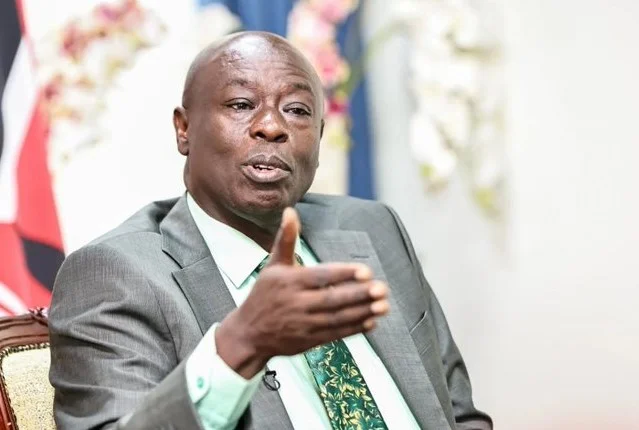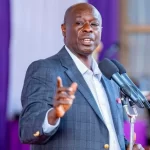
Deputy President Rigathi Gachagua during a previous address. PHOTO | Courtesy
In Summary:
- Deputy President Rigathi Gachagua addressed claims by National Assembly Majority Leader Kimani Ichung’wah criticizing his association with his village.
- Gachagua expressed pride in his roots and stated that everyone has a place of origin they should embrace.
- He urged leaders to stop disrespecting others by branding them as “villagers” and encouraged the use of vernacular languages to show respect for one’s identity.
Deputy President Rigathi Gachagua has addressed remarks made by National Assembly Majority Leader Kimani Ichung’wah, who criticized his association with his village.
Speaking at the Pharmaceutical Society of Kenya International Scientific Conference in Mombasa, Gachagua expressed his surprise over being criticized for his village roots.
Acknowledging his background, the Deputy President mentioned that after the conference, he would briefly travel to Nairobi before returning to his village.
“You know, every person has somewhere they came from and everyone has a home,” he stated, highlighting that cities like Nairobi and Mombasa are where people come to earn a livelihood.
Gachagua questioned why anyone would have an issue with embracing one’s origins and urged Kenyans to take pride in their identity without feeling embarrassed.
He also called on leaders to stop disrespectfully branding other politicians as “villagers.”
Previously, Ichung’wah had remarked that it was impossible to build a kingdom with someone who still craved attention from their village, indirectly referring to Gachagua’s strong ties to the Mt. Kenya region as a tactic to pressure President William Ruto.
In response, the Deputy President asserted that he would continue speaking in vernacular languages when visiting his village in Nyeri County, as it shows respect for one’s origin.
Gachagua’s comments emphasize the importance of embracing one’s roots and cultural identity while calling for mutual respect among leaders, regardless of their backgrounds or affiliations.

